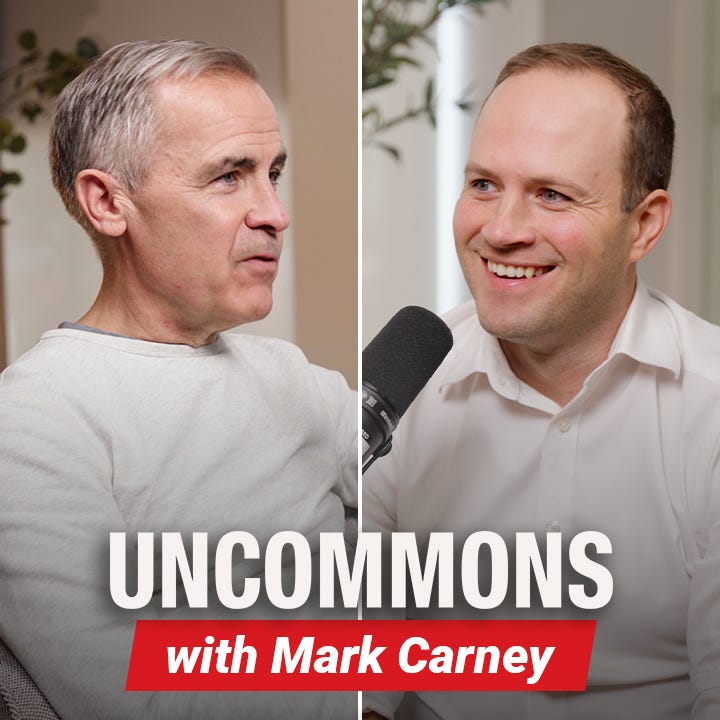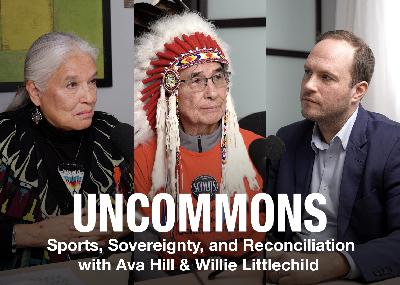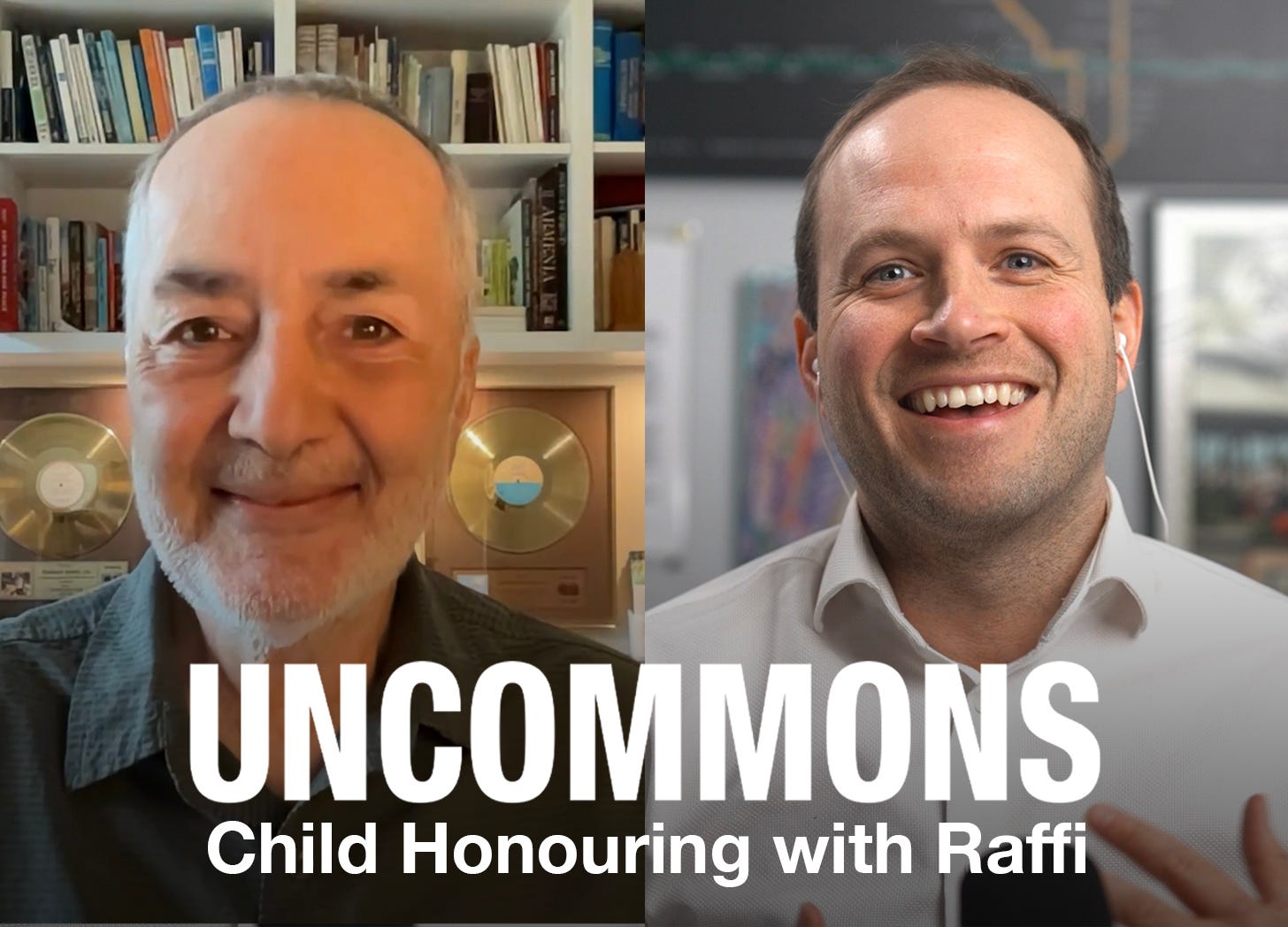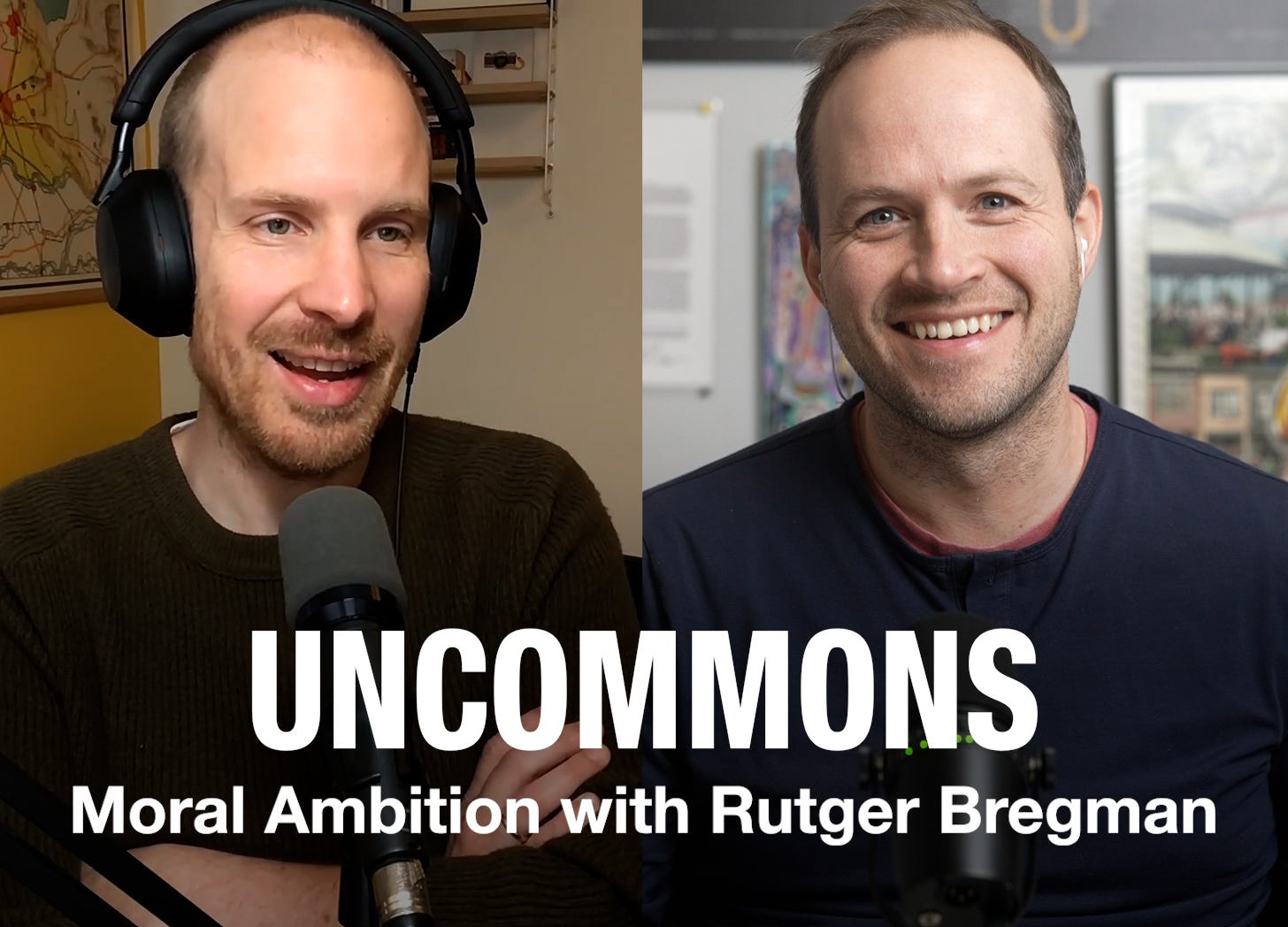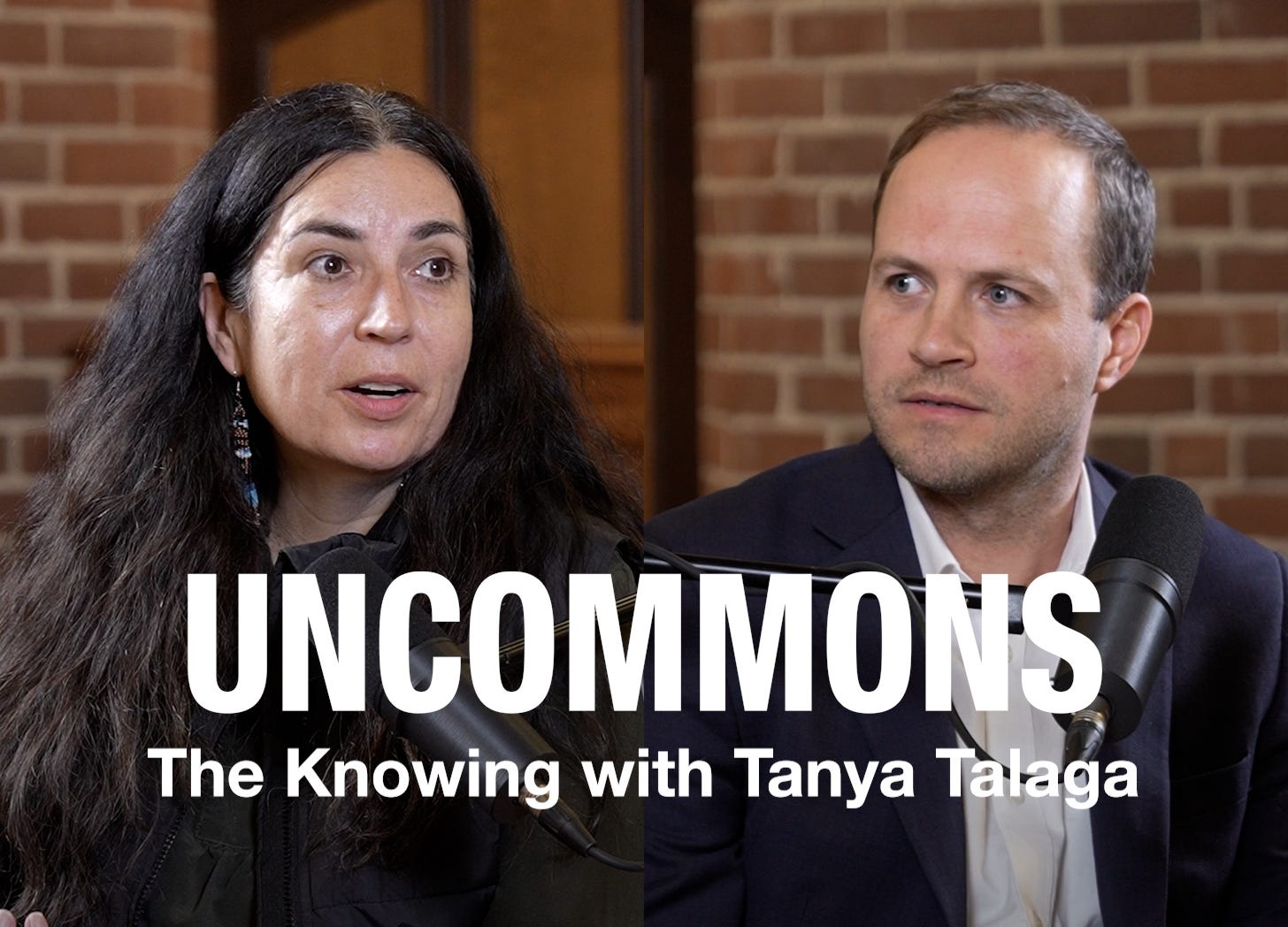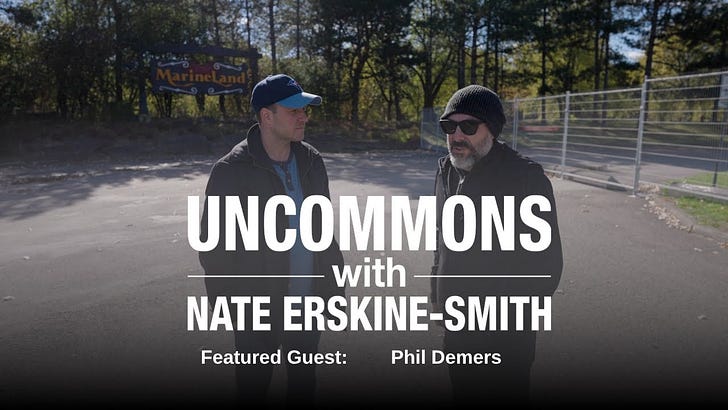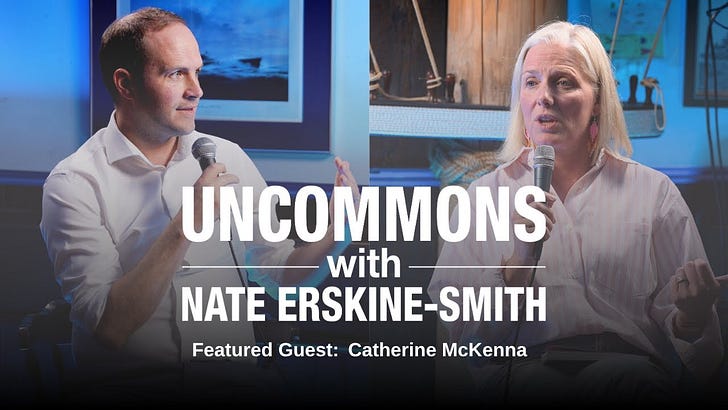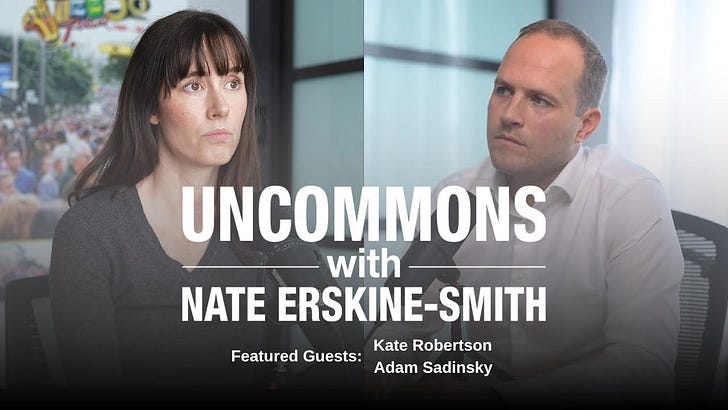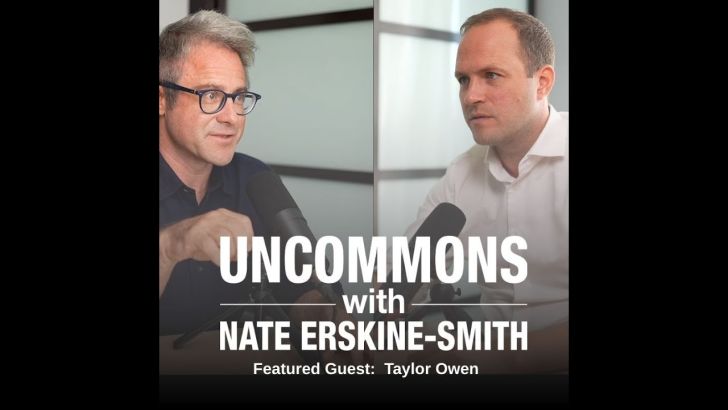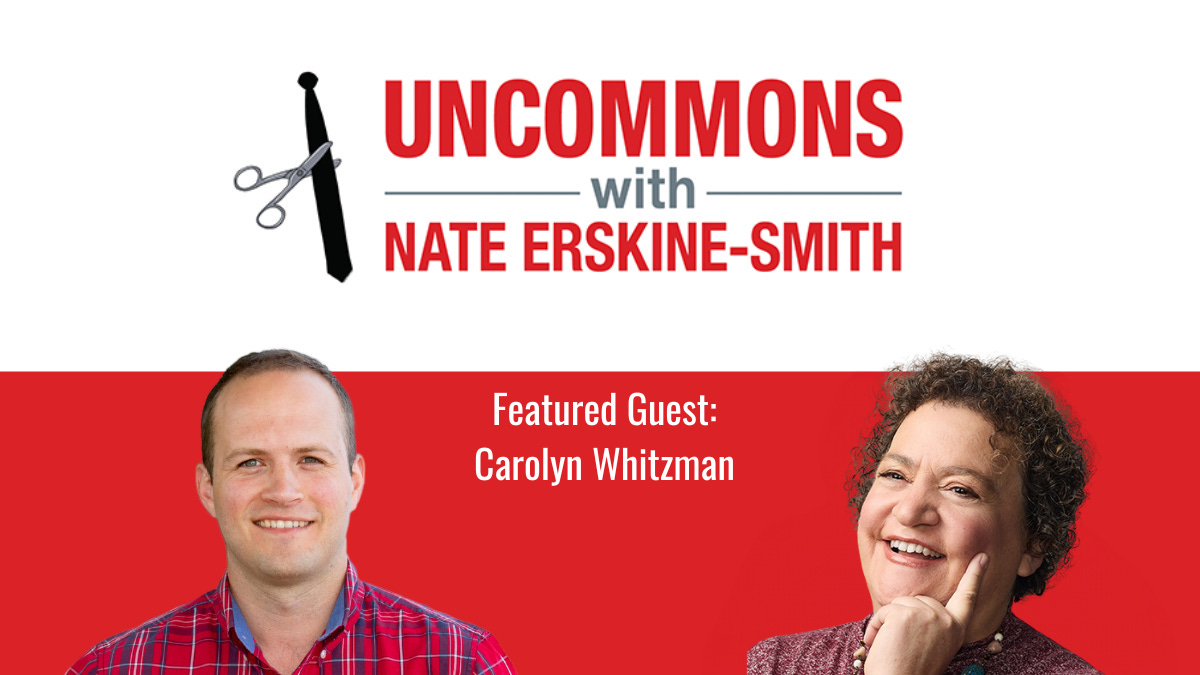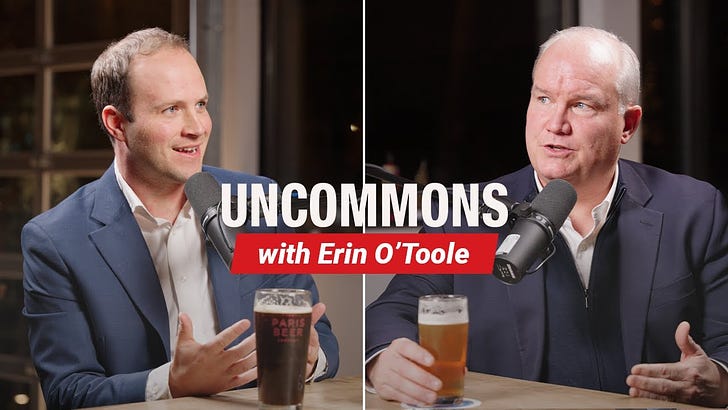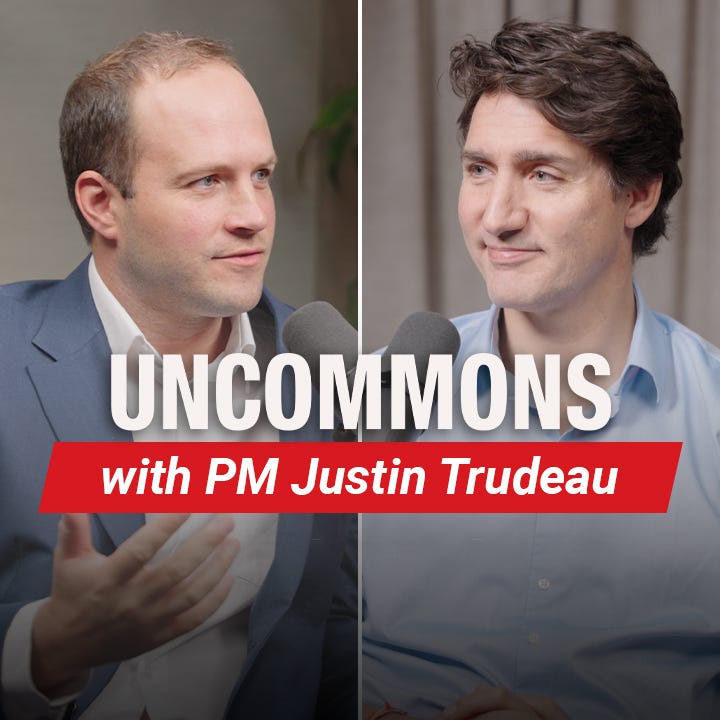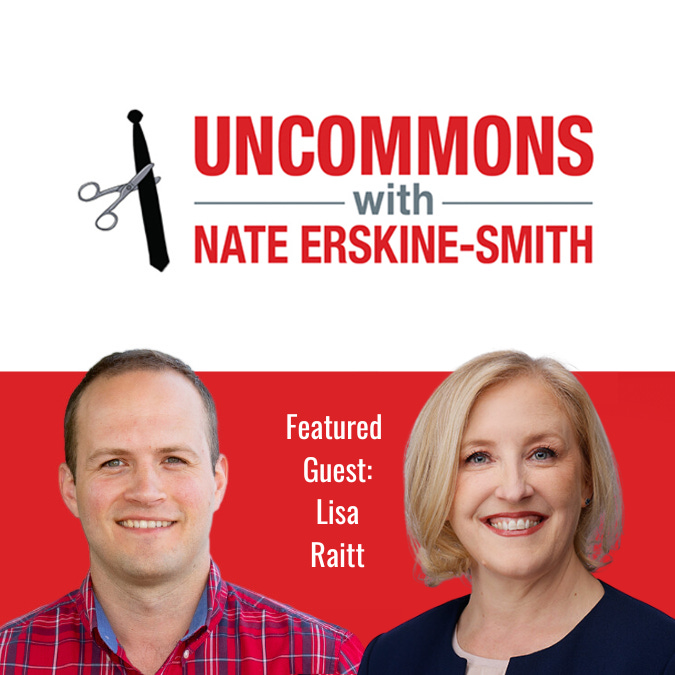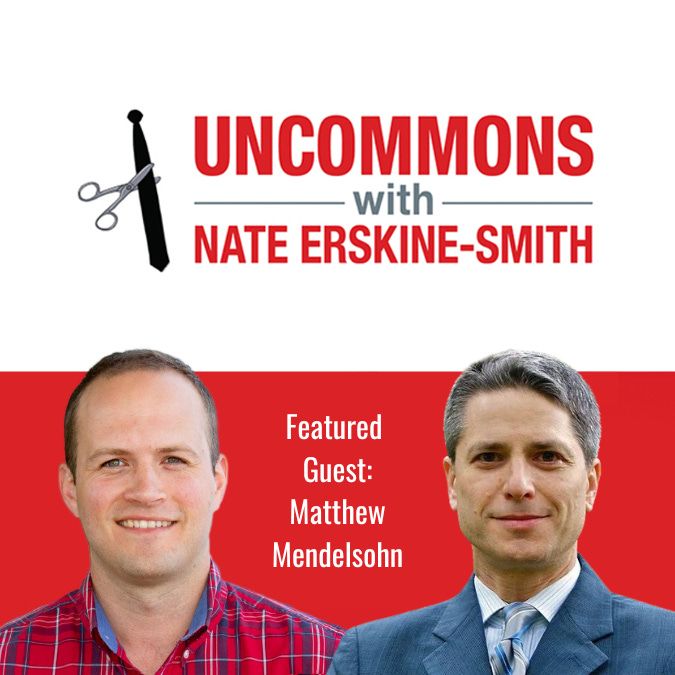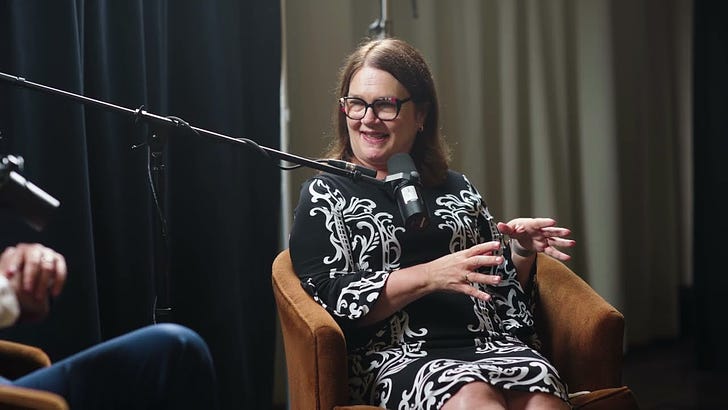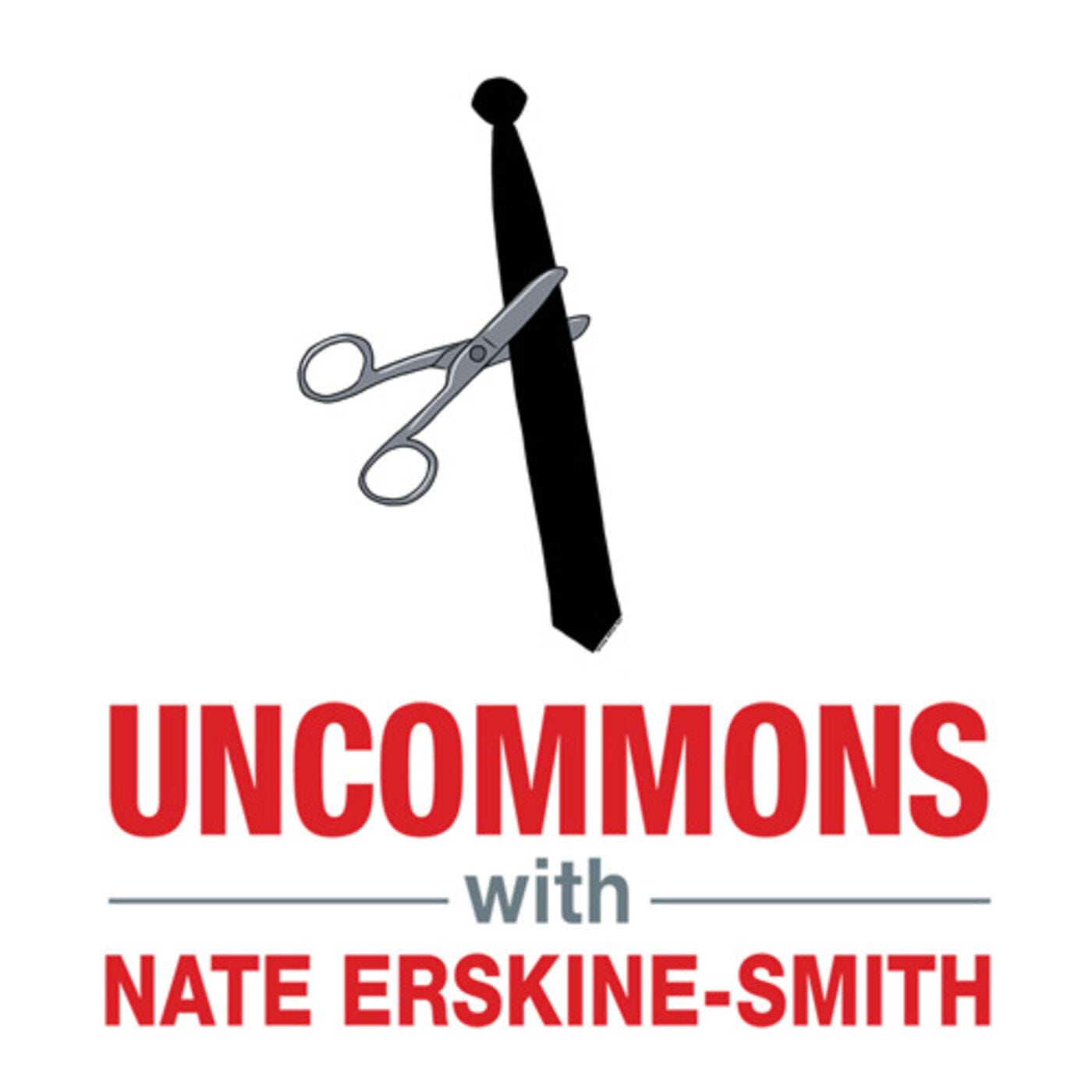Mark Carney on Uncommons
Description
On this episode, Mark Carney joins Nate on the podcast to discuss the current political landscape, sustainable finance and the economic opportunities of climate action, and his future in politics as now economic advisor to the Liberal Party and potential future candidate.Mark has served as the Governor of the Bank of Canada and then the Governor of the Bank of England. He now serves as the UN Special Envoy on Climate Action and Finance, and as the Vice Chair of Brookfield Asset Management.
Transcript:
Introduction
Nate Erskine-Smith: Welcome to Uncommons. I’m Nate Erskine-Smith, and on this episode, I’m joined by Mark Carney. He is, of course, the former governor of the Bank of Canada, he’s the former governor of the Bank of England, and he is also much more political these days, including joining a podcast like this to talk about not only politics, but Liberal politics, because right now, he occupies the role of chair of an economic task force to the Liberal Party and Prime Minister, and he might well have a future in politics beyond that as well.
Sustainable Finance Within a Global Context
Nate Erskine-Smith: Mark, thanks for joining me.
Mark Carney: Thanks for having me, Nate.
Nate Erskine-Smith: I was going to make a joke about how you are the first guest we've had since the Prime Minister and people can read into that as they like. But I actually want to start with why you're here in Toronto–sustainable finance. And before people's eyes glaze over, maybe you can help ensure their eyes don’t glaze over.
Mark Carney: We’ve lost the audience already.
Nate Erskine-Smith: But what do you hope to see achieved through sustainable finance in terms of actual serious climate action?
Mark Carney: Yeah, so first thing, thanks for having me and I'm here, I'm giving, a talk later on today at something called the PRI in person, which is 2000 people from around the world focused on more than just sustainable finance, but certainly sustainable finance, and I'm going to talk about that aspect of it and specifically what is the financial sector doing and not doing to get capital to solutions to address climate change.
In essence, that's what sustainable finance is. Success in sustainable finance will be when we can drop the adjective, when this just becomes mainstream. And all the work that I and others have been doing, particularly since three years ago, almost to the day, there was a COP, one of these big processes in Glasgow, where finance was at the heart of it. And we've been working to make sure that people have the information first and foremost.
And when I say people, I mean people, you know, out here in The Beaches, people working in the center of Wall Street or around the world, investors, people managing people's pensions, that they have the information that's needed in order to judge who's part of the solution and who's still part of the problem, that we have the right market structure. We need some new markets in order to solve this and that we see action and we can judge that action accordingly.
Nate Erskine-Smith: And before we get to the possible potential impact of that disclosure–the Canadian context. So you had said in 2019 I think you'd expressed some frustration in one of your speeches about, and this wasn't specific to Canada, but the global pace of progress towards sustainable finance was moving far too slow. We wake up and it’s five years later and in Canada, we still haven't seen these rules put in place. And so what do you hope to see hopefully sooner than later here in Canada?
Mark Carney: Yeah, well, let me give a global context first. It's a global event, global context, we operate in a global market, capital moves around the world.
And if I look at the world, you have over 700 of the world's largest financial institutions controlling over 40% of the financial assets in the world. Huge numbers, $150 trillion, US dollars, for that matter that these institutions oversee, They're all committed to shift the management of those assets consistent with the transition towards net zero. In other words, to help companies and countries and municipalities get their emissions down. Okay. That's what they're committed to do. And by the way, that what comes with that is if somebody isn't trying to get their emissions down, then money is shifting from those companies.
And in one example, to those who are doing something. So globally, you have a huge shift towards this first thing. Secondly, it starts with just reporting on where you stand today. What does your portfolio look like? Who are you investing in or lending to? The next step, of course, is to have a plan. You don't solve anything without a plan. You got to put the plan in action. And as we meet today, we're in a situation where 500 of those 700 institutions have full blown, what's called a transition plan, but a plan, to move the money, and they are moving the money, towards the solutions.
Sustainable Finance Within a Canadian Context
Fast forward to Canada, or shift to Canada. What we don't yet have is the disclosure regime fully operating so that Canadians can judge who's doing the right thing or not. A number of Canadian institutions are doing it voluntarily, but it's not required for everyone like it is in Europe, like it is in the UK, and elsewhere. And secondly, we don't have, sorry, a framework, an accepted way or consistent way of putting together those plans.
And look, I've been through a bunch of crises over my time as a central bank governor and policymaker. And the one thing I know is in a crisis, plan beats no plan. You cannot get your way out of a situation without a plan. It's a good motto for life, I guess, as well.
Nate Erskine-Smith: What do you make though? So we put the plans in place. We've got the disclosure regime, hopefully sooner than later, as they say. How do we move away from, take ESG. And there's promise to it, but there's also the bottom line, and a company will, as fast as anything, walk away from ESG if it no longer matters to their bottom line. And how does this differ from that?
Mark Carney: Yeah, so I work in a subset of ESG, so ESG–environmental, social, and governance. I work on the environment bit of it, and I work in a subset of the environment, which is the transition towards a low carbon economy or net zero.
because obviously in environment there's nature and biodiversity and other aspects. I work in the bit where you can count very clearly what's happening and that's part of what so-called disclosure is doing. And therefore, people are able to judge, again, who's part of the solution, who's still part of the problem. Now in order to do that, in order for everyone to be able to make those judgments, they need access to that information in a way that they can,you know, access it readily. It should be free and it should be consistent. And one of the things that some of the voluntary work that I'm doing is to build out the net zero data public utility. First time that's been on the podcast, I'm sure.
Nate Erskine-Smith: Yeah, I know eyes are now fully glazed.
Mark Carney: But what it means is that you can, you can judge which of our banks, as of, as of the middle of next year, which of our banks is doing well relative to the others and how are they doing relative to other international banks? What happens today is somebody will write a report and it'll become an argument about the quality of the data or the, you know, the completeness of the data. So first is to get, is to get that information.
The second, but the bigger point which I think you're driving at is okay, but why are companies going to do this? Companies and financial institutions are going to do this because Canadians and people around the world want them to do it. After all, they elected a government, your government, over the course, and a number of provincial governments, that have climate action at the core of their platforms. After all, it is the law of the land. It literally is the law of the land in Canada that we transition towards net zero. Now, how we do that requires certain policies from government, and a number of them are being put in place. More will be required without question.
But financial institutions and companies in Canada and elsewhere around the world react to those policies and they react to the values of people. A lot of the work that I've done in recent years has been around getting the market, shorthand, value, value in the market, what's priced, to be consistent with what people care about, what people value, the values, in this case, of Canadians around sustainability and the transition.
Capturing the Value of the Environment
Nate Erskine-Smith: Yeah, I mean, I remember reading your Reith lectures, which then were sort of the basis of the book. And, I know you've got another book we can talk about. But I mean, and the core of it is that idea that disconnect between value and values and, you know, the price of everything and the value of nothing, that old line.
One of your examples, though, is, you know, we know how to, we know the value of Amazon, the company and we don't properly capture the value of Amazon, the rainforest. And despite the obvious value to the world, to the climate, to the environment, the world, disclosure gets us part of the way there. So how do you tackle, take that example, that simple example of Amazon and Amazon, what policies should we be looking at to solve that problem?
Mark Carney: Yeah, absolutely. And so, and just to make the challenge greater, the price on the Amazon, the rainforest actually occurs when the trees are cut down and they start farming. So it's the exact opposite direction of what the planet needs a

